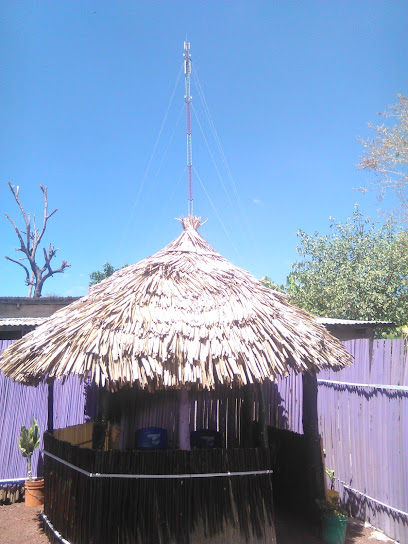
Discover the Wonders of Ngorongoro Crater National Park
Explore the breathtaking landscapes and diverse wildlife at Ngorongoro Crater National Park, Tanzania's iconic geological wonder and UNESCO World Heritage site.
Ngorongoro Crater National Park, a UNESCO World Heritage site, offers a breathtaking combination of stunning landscapes and diverse wildlife, making it a must-visit destination for tourists in Tanzania. Explore the rich ecosystems and immerse yourself in nature's beauty.
A brief summary to Ngorongoro crater national park
- Ngorongoro B144 Ngorongoro TZ, 2565, TZ
- +255764687041
- Visit website
Local tips
- Visit during the early morning or late afternoon for the best wildlife viewing opportunities.
- Ensure to carry a good pair of binoculars for spotting distant wildlife.
- Consider hiring a knowledgeable local guide to enhance your experience and understanding of the ecosystem.
- Pack a picnic lunch, as many scenic spots within the park provide breathtaking views for a perfect meal break.
- Wear comfortable clothing and bring sunscreen, as temperatures can vary throughout the day.
Getting There
-
Car
If you are traveling by car within the Ngorongoro Conservation Area, head towards the Ngorongoro Crater entrance located at Ngorongoro B144, Ngorongoro, TZ. Follow the signs for Ngorongoro Crater. The entrance is approximately 20 kilometers from the Ngorongoro Conservation Area headquarters. Be prepared for a rough and winding road, as the area is mountainous. There is an entrance fee of approximately $60 USD for non-residents and $15 USD for residents. Ensure your vehicle has enough fuel, as refueling options are limited.
-
Public Transportation
For those using public transportation, you can take a bus from Arusha to Karatu, which costs around $5 USD. Once in Karatu, you will need to hire a shared taxi or a private vehicle to reach the Ngorongoro Crater entrance. The taxi ride will cost approximately $40 to $50 USD, depending on the number of passengers. Make sure to communicate your destination clearly to the driver.
-
Guided Tour
Another convenient option is to book a guided tour from Arusha or Karatu. These tours usually include transportation, park fees, and a guide who is knowledgeable about the area. Prices vary but expect to pay around $200 to $300 USD per person for a full-day tour, including all fees and lunch. This option ensures a stress-free experience and provides insights into the local wildlife and ecosystem.
-
Walking (within the Crater)
Once you enter the Ngorongoro Crater, walking is allowed in certain areas under the supervision of a park ranger. You may need to book a special walking safari in advance, which could cost an additional fee. Always check in with the ranger stations for guided walks and safety protocols.
Discover more about Ngorongoro crater national park
Iconic landmarks you can’t miss
Entamanu Ngorongoro Camp
7.9 km
Discover the luxury of nature at Entamanu Ngorongoro Camp, where breathtaking views and unforgettable wildlife experiences await in Tanzania's stunning landscapes.

Nomad Tanzania - Entamanu, Ngorongoro
7.9 km
Discover the beauty of Ngorongoro at Entamanu Lodge, where luxury meets nature in Tanzania's stunning wilderness.

Ngorongoro Serena Safari Lodge
8.9 km
Discover luxury and breathtaking views at Ngorongoro Serena Safari Lodge, a gateway to the wonders of Ngorongoro Crater and its diverse wildlife.

Simba Campsite A
9.3 km
Discover the wild heart of Tanzania at Simba Campsite A, a premier campground in the breathtaking Ngorongoro region, perfect for nature lovers and adventurers.

Ngorongoro Lodge member of Meliá Collection
9.4 km
Discover luxury and adventure at Ngorongoro Lodge, an oasis nestled in the breathtaking Ngorongoro Conservation Area, Tanzania.

andBeyond Ngorongoro Crater Lodge
9.9 km
Experience the luxury and breathtaking beauty of the Ngorongoro Crater at andBeyond Ngorongoro Crater Lodge, where nature meets opulence.
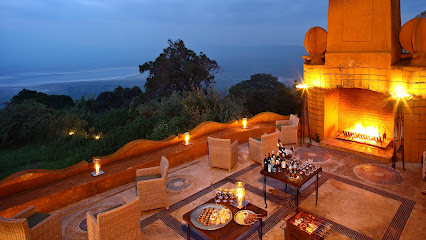
Ngorongoro Rhino Lodge
10.4 km
Experience the tranquility and adventure at Ngorongoro Rhino Lodge, your gateway to Tanzania's stunning Ngorongoro Crater.
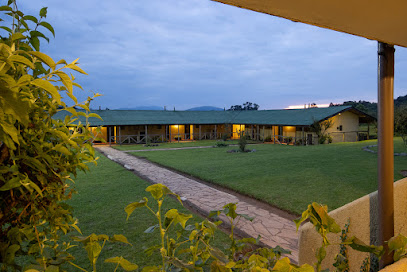
Ngorongoro Kuhama Camp
10.6 km
Experience the wild beauty of Ngorongoro at Kuhama Camp, where luxury meets nature in an unforgettable lodge retreat.

Ngorongoro Wildlife
10.6 km
Discover the incredible wildlife and stunning landscapes of Ngorongoro Wildlife, a UNESCO World Heritage site in Tanzania, perfect for nature enthusiasts.
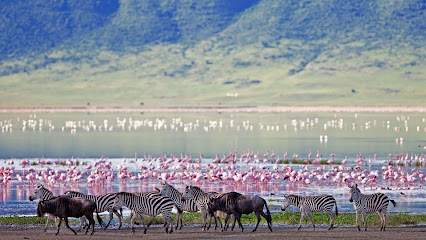
Ngorongoro Lions Paw by Karibu Camps & Lodges
13.5 km
Discover the breathtaking beauty and unique wildlife of Ngorongoro Crater at Ngorongoro Lions Paw, your luxurious lodge in Tanzania's natural paradise.
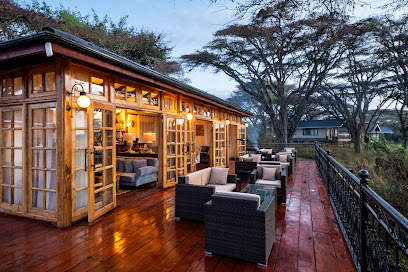
Sanctuary Ngorongoro Crater Camp Tanzania
13.9 km
Discover the breathtaking landscapes and incredible wildlife of Tanzania at Sanctuary Ngorongoro Crater Camp, where luxury meets nature.

Ngorongoro Sopa Lodge
14.5 km
Discover unparalleled luxury at Ngorongoro Sopa Lodge, your gateway to the stunning landscapes and wildlife of the Ngorongoro Crater.

Lemala Ngorongoro Tented Camp
14.8 km
Immerse yourself in the breathtaking beauty of Ngorongoro Crater at Lemala Ngorongoro Tented Camp, where luxury meets nature in Tanzania's wildlife paradise.
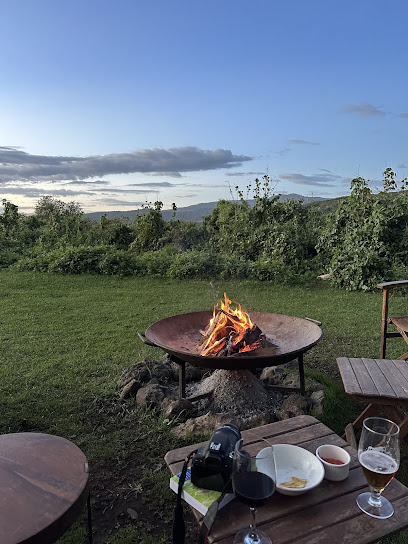
Neptune Ngorongoro Luxury Lodge
16.2 km
Discover the breathtaking beauty of Ngorongoro Crater at Neptune Ngorongoro Luxury Lodge, where luxury meets nature in Tanzania's iconic landscape.

Hhando Coffee Lodge
16.4 km
Discover serenity at Hhando Coffee Lodge, your perfect base for exploring Tanzania's stunning landscapes and wildlife adventures.

Unmissable attractions to see
Ngorongoro Crater
2.1 km
Explore the breathtaking Ngorongoro Crater, a UNESCO World Heritage Site teeming with wildlife and stunning landscapes, a top safari destination in Tanzania.
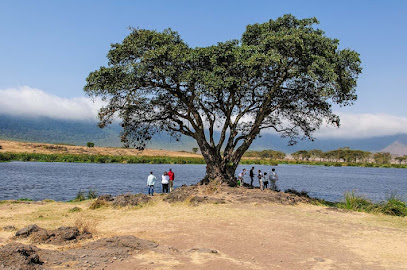
Mandusi Swamp
3.0 km
Explore the serene beauty of Mandusi Swamp in Mti Mmoja, Tanzania, a tranquil park brimming with wildlife and natural wonders.
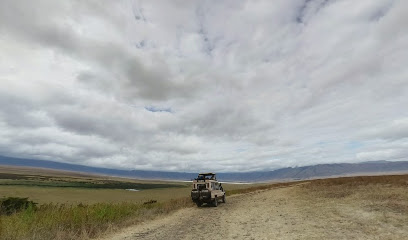
Lake Magadi
3.1 km
Experience the surreal beauty of Lake Magadi, a vibrant salt lake in Tanzania, teeming with wildlife and stunning landscapes.
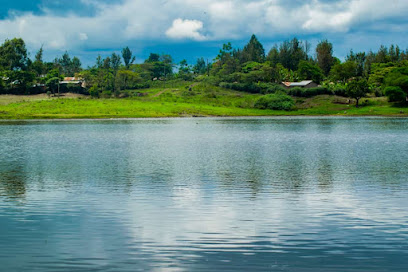
Picknic site
5.5 km
Experience the tranquil beauty of Picknic Site in Malanja Depression, a serene escape perfect for nature lovers and picnicking enthusiasts.
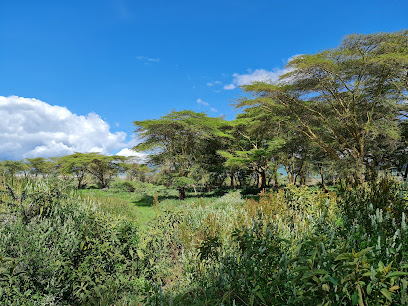
Lerai Forest NCA
6.5 km
Explore the lush landscapes and diverse wildlife of Lerai Forest NCA in Ngorongoro, a hidden gem for nature lovers and adventurous travelers.
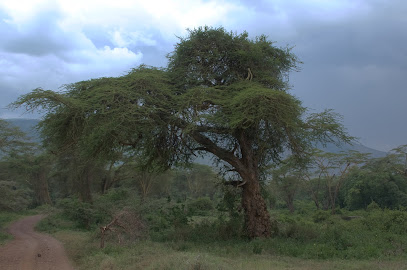
Lerai Picnic Site
7.4 km
Experience the tranquil beauty of Lerai Picnic Site in Tanzania, a perfect retreat for picnics, relaxation, and nature exploration.
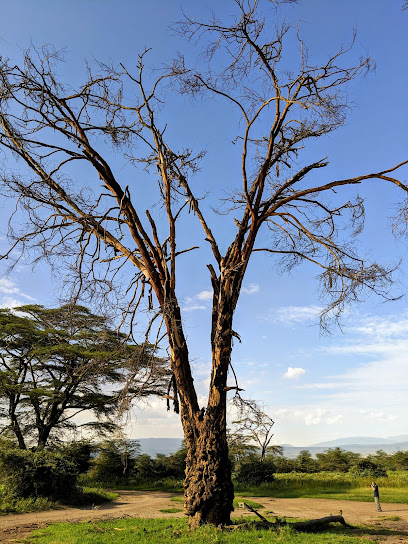
Ngorongoro Entrance Gate
7.7 km
Explore the stunning Ngorongoro Entrance Gate, the gateway to Tanzania's breathtaking Ngorongoro Crater, rich in wildlife and natural beauty.
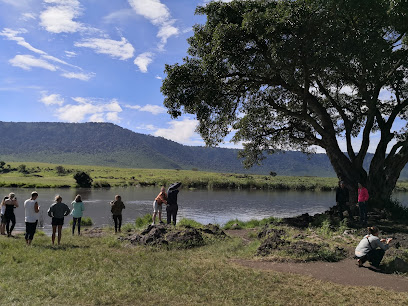
Nomad camping
8.0 km
Experience the beauty of nature at Nomad Camping in Malanja Depression, a tranquil escape for adventure seekers in Tanzania's breathtaking landscapes.
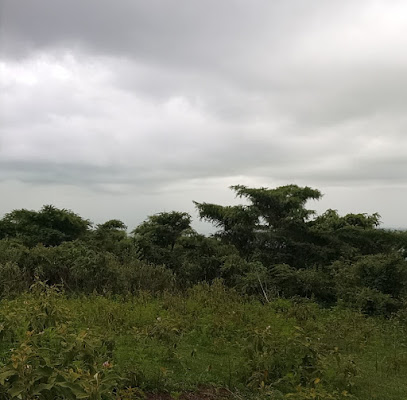
Massai Dorf
8.2 km
Experience the vibrant traditions of the Maasai people at the Massai Dorf, a unique cultural attraction in Tanzania's stunning Malanja Depression.
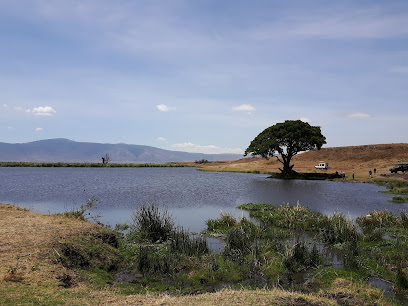
Viewpoint, Ngorongoro Crater
9.0 km
Experience the breathtaking views and rich biodiversity at Ngorongoro Crater Viewpoint, a must-visit in Tanzania's stunning landscapes.
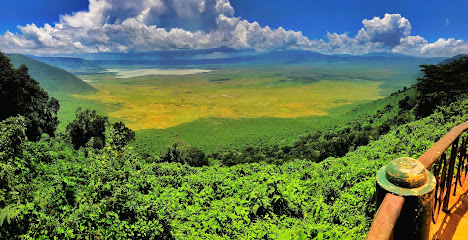
ngorongoro conservation area authority headquater
11.0 km
Experience the breathtaking landscapes and vibrant wildlife of Ngorongoro Conservation Area, a must-visit UNESCO World Heritage Site in Tanzania.
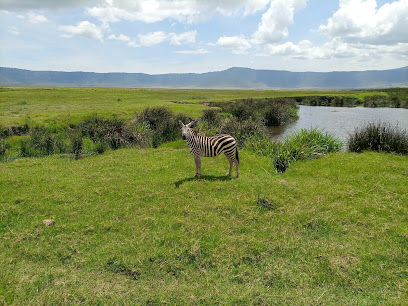
Ngorongoro Crater ViewPoint
11.3 km
Explore the stunning Ngorongoro Crater ViewPoint for breathtaking views and unparalleled wildlife experiences in Tanzania's remarkable landscape.
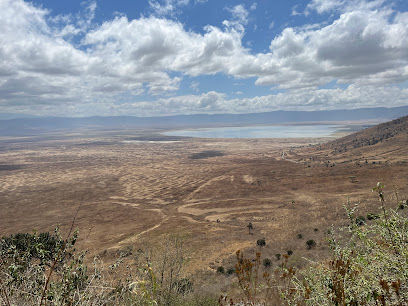
Ngorongoro Eastern Crater, Lemala Gate
14.4 km
Explore the breathtaking beauty and rich biodiversity of Ngorongoro Eastern Crater, a UNESCO World Heritage site in Tanzania, perfect for wildlife enthusiasts.
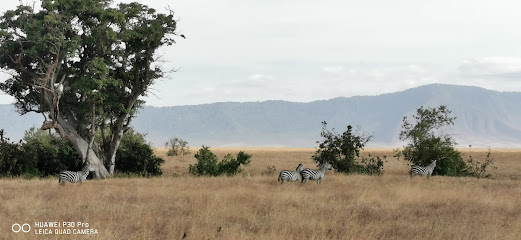
Ngorogoro Conservation Authority
15.6 km
Explore the breathtaking Ngorongoro Conservation Authority, home to stunning wildlife, rich culture, and remarkable landscapes in Tanzania.
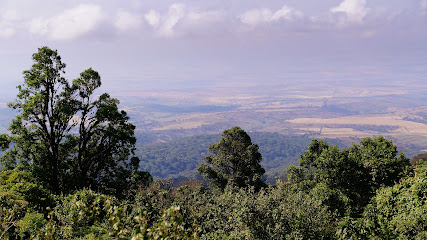
Lodoare Gate, Ngorongoro
15.6 km
Explore the breathtaking landscapes and wildlife of Ngorongoro National Park through the stunning Lodoare Gate, a gateway to adventure.
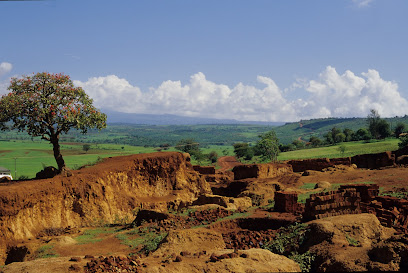
Essential places to dine
The Retreat at Ngorongoro
20.2 km
Discover unparalleled luxury and stunning views at The Retreat at Ngorongoro—your gateway to Tanzania’s majestic landscapes.

Ngorogoro Tortilis Camp
21.6 km
Discover luxury in nature at Ngorongoro Tortilis Camp - your gateway to Tanzania's breathtaking wildlife and scenic beauty.

Madiba Café & Restaurant
24.1 km
Discover authentic Tanzanian cuisine at Madiba Café & Restaurant in Karatu – where every meal tells a story.
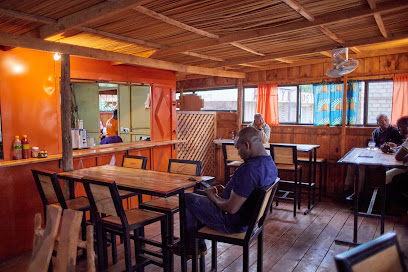
Food Lovers Karatu
24.2 km
Experience the authentic tastes of Tanzania at Food Lovers Karatu - where every meal tells a story.
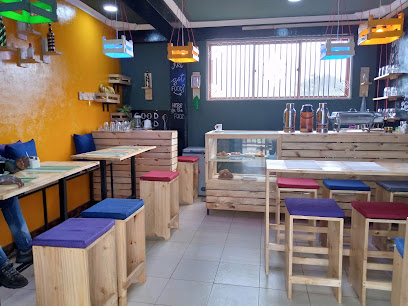
Ol Mesera Restaurant
36.7 km
Discover innovative Tanzanian cuisine at Ol Mesera Restaurant in Mto Wa Mbu – where tradition meets creativity.
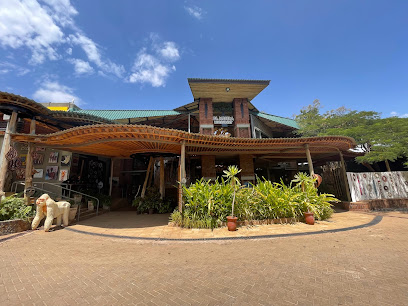
Heart & Soul Lodge Manyara
37.5 km
Discover tranquility and natural beauty at Heart & Soul Lodge Manyara - your perfect escape in Tanzania's breathtaking landscapes.

Manyara Best View Lodge
38.5 km
Discover tranquility and stunning vistas at Manyara Best View Lodge, your gateway to Tanzania's breathtaking landscapes and wildlife adventures.

Manyara Safari Lodge
40.4 km
Discover wildlife wonders and breathtaking views at Manyara Safari Lodge – your gateway to Tanzania's natural beauty.
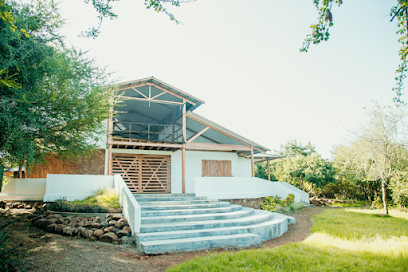
Cafe La Aziz
41.4 km
Discover authentic Tanzanian flavors at Café La Aziz in Mto Wa Mbu – a vibrant restaurant offering delicious local cuisine in a welcoming atmosphere.
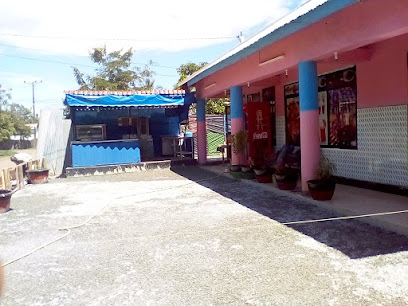
Cafe Kabisa
42.0 km
Discover Café Kabisa in Mto Wa Mbu - A perfect blend of local flavors and warm hospitality amidst stunning scenery.
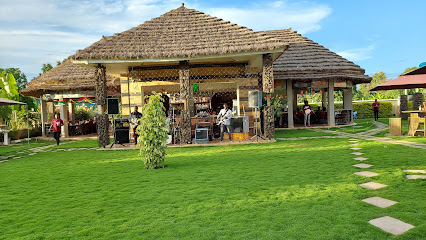
Taste Poa Cafe
42.1 km
Discover Taste Poa Cafe in Mto wa Mbu: A culinary haven blending local flavors with international favorites for every traveler.
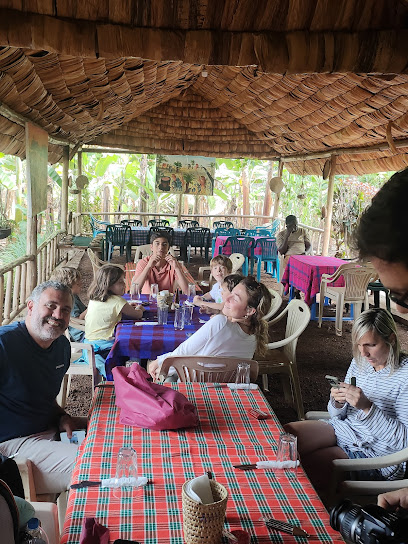
Lucy Chakula
42.6 km
Discover authentic Tanzanian cuisine at Lucy Chakula - where every meal tells a story of flavor and tradition.
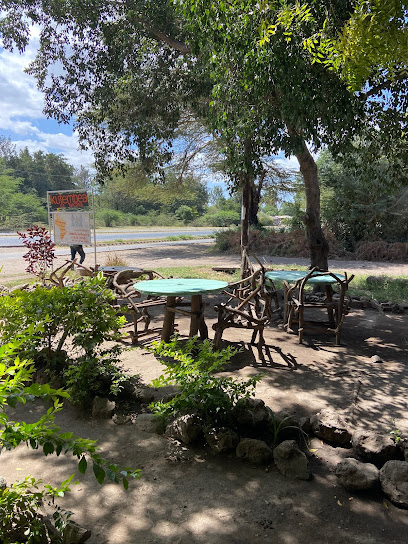
Jungle Pearl Resort
45.2 km
Experience luxury and tranquility at Jungle Pearl Resort - your perfect escape in Tanzania's breathtaking nature.
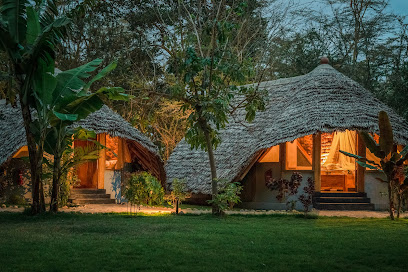
Lake Manyara picnic site
54.6 km
Experience serene picnicking amidst stunning landscapes and diverse wildlife at Lake Manyara Picnic Site in Tanzania.
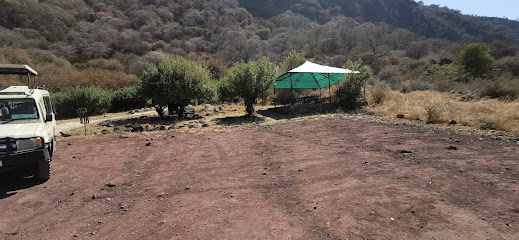
andBeyond Lake Manyara Tree Lodge
60.0 km
Discover luxury nestled in nature at andBeyond Lake Manyara Tree Lodge - an unforgettable safari experience in Tanzania's breathtaking landscapes.
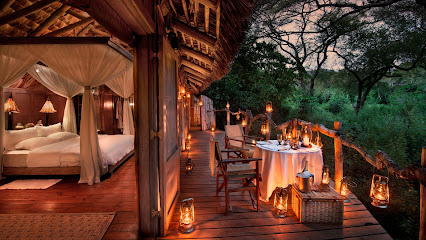
Markets, malls and hidden boutiques
The Tanzanite Experience - Ngorongoro Serena Safari Lodge
8.9 km
Discover the beauty of Tanzanite at The Tanzanite Experience, nestled in the breathtaking Ngorongoro Crater's serene landscapes.
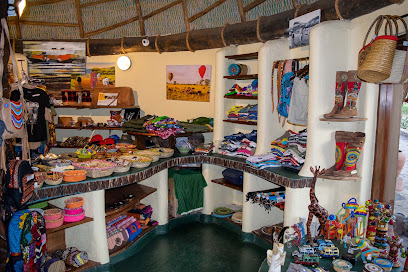
Simba camp site dining area
9.3 km
Discover the serene charm of Simba Camp Site Dining Area, where delightful coffee meets breathtaking nature in Tanzania.
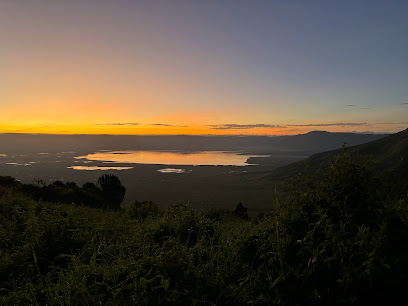
The Tanzanite Experience - The Manor at Ngorongoro
15.6 km
Explore the stunning world of Tanzanite gemstones at The Tanzanite Experience in Ngorongoro, where elegance meets nature's beauty.

HAKUNA MATAYA Gallery Shop
22.8 km
Explore HAKUNA MATAYA Gallery Shop in Karatu for authentic Tanzanian souvenirs and support local artisans with every purchase.
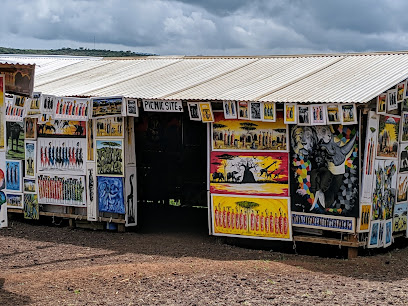
Tanzanite Coffee Cafe
23.0 km
Experience the essence of Tanzania at Tanzanite Coffee Cafe, where every cup of coffee tells a story of local heritage and flavor.

Madame's Store
23.8 km
Discover the local charm of Madame's Store in Karatu, where convenience meets culture with unique crafts and essentials.

Truddy's store
23.8 km
Explore Truddy's Store in Karatu for a delightful blend of local crafts, delicious cuisine, and an authentic Tanzanian shopping experience.
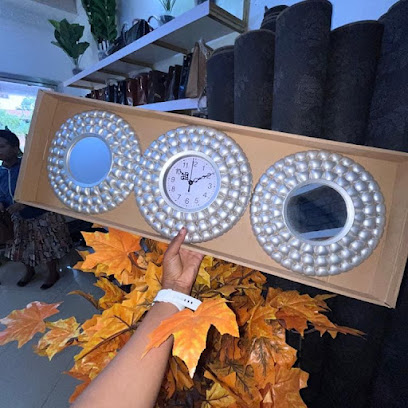
Martina stationary,Cakes point & Decorations
23.9 km
Explore Martina Stationary in Karatu for unique stationery, delicious cakes, and festive decorations, perfect for every creative celebration.

Megha Internet Cafe & Stationary
23.9 km
Experience the fusion of connectivity and local culture at Megha Internet Cafe & Stationary in Karatu, your go-to spot for stationery and high-speed internet.
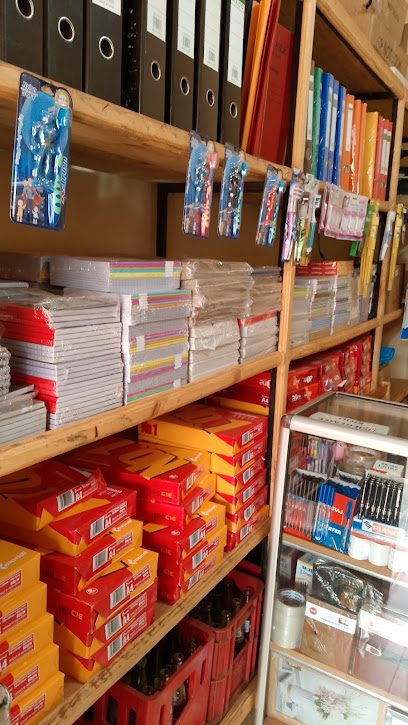
The Collection by Sha
24.0 km
Discover stylish shoes and fashionable clothing at The Collection by Sha in Karatu, Tanzania—a must-visit for all fashion lovers.

Samaki point karatu
24.0 km
Discover the freshest seafood at Samaki Point in Karatu, where quality meets local flavors in an unforgettable culinary experience.

Ambrose
24.0 km
Explore Ambrose, the ultimate destination for stylish and durable work clothing that meets all your professional needs.

Living Love Foundation
24.0 km
Explore the Living Love Foundation in Tanzania – a thrift store with a mission, offering unique finds and supporting community initiatives.

Neema Collections
24.0 km
Explore Neema Collections in Karatu for unique, handcrafted clothing and accessories that reflect the rich culture of Tanzania.
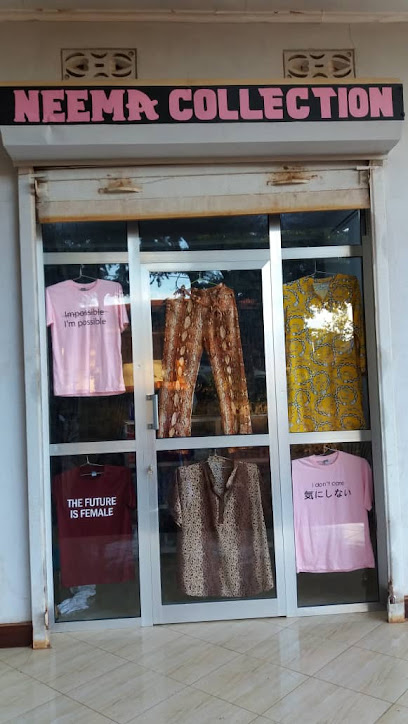
Safari Shopping Center
24.0 km
Discover the vibrant shopping experience at Safari Shopping Center in Karatu, where local culture meets quality products for every traveler.
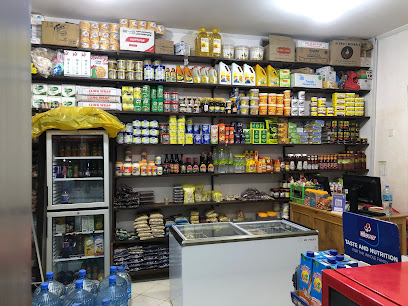
Essential bars & hidden hideouts
Pakulala Luxury Safari Camp
9.0 km
Experience the wild beauty of Tanzania at Pakulala Luxury Safari Camp, where luxury meets adventure in the Ngorongoro Conservation Area.

The Manor at Ngorongoro
18.4 km
Discover the elegance of The Manor at Ngorongoro, a luxurious hotel surrounded by Tanzania's breathtaking natural beauty and rich wildlife.
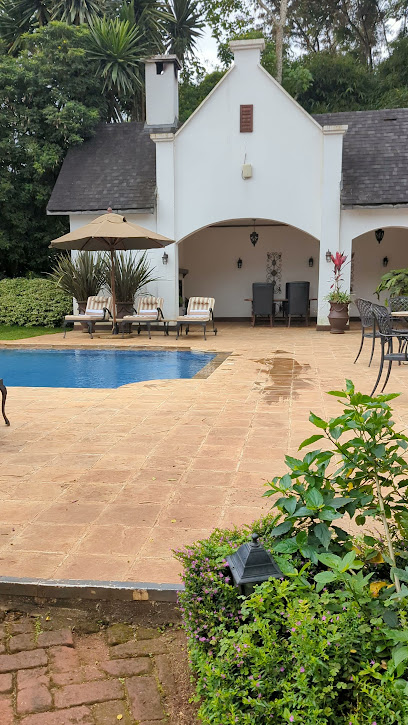
Crater Forest Tented Camp
22.8 km
Discover the perfect blend of comfort and wilderness at Crater Forest Tented Camp in Tanzania's breathtaking landscapes.

Karatu Green Park
23.4 km
Discover relaxation and local charm at Karatu Green Park, a vibrant bar in the heart of Tanzania's scenic Karatu region.
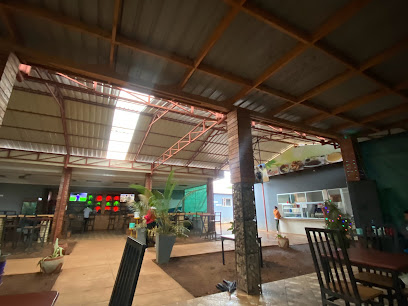
Redstone karatu
23.8 km
Discover the heart of Arusha at Redstone Karatu, where vibrant culture meets culinary delight in a lively lounge atmosphere.
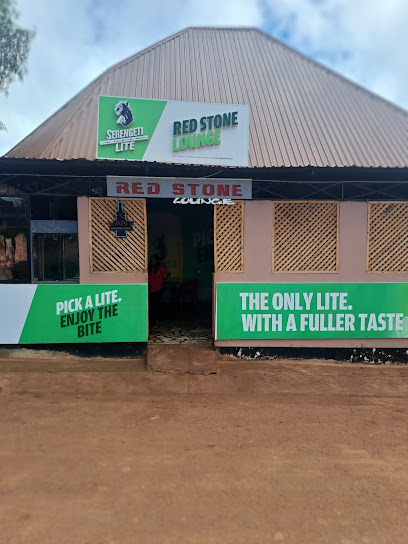
Golden Sparrow Lounge Karatu
24.0 km
Experience the taste of Tanzania at Golden Sparrow Lounge in Karatu, where local flavors meet international flair in a welcoming atmosphere.
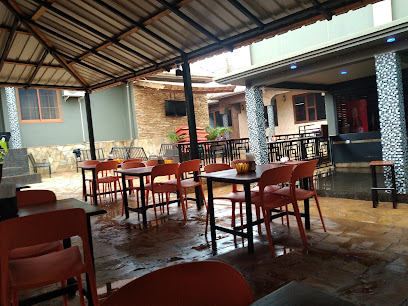
Waah pub
24.2 km
Discover the lively Waah Pub in Karatu, where great drinks, local cuisine, and a vibrant atmosphere await every visitor.

Marula Bar Karatu
24.3 km
Discover the lively atmosphere of Marula Bar in Karatu, where refreshing drinks and local vibes come together for an unforgettable experience.
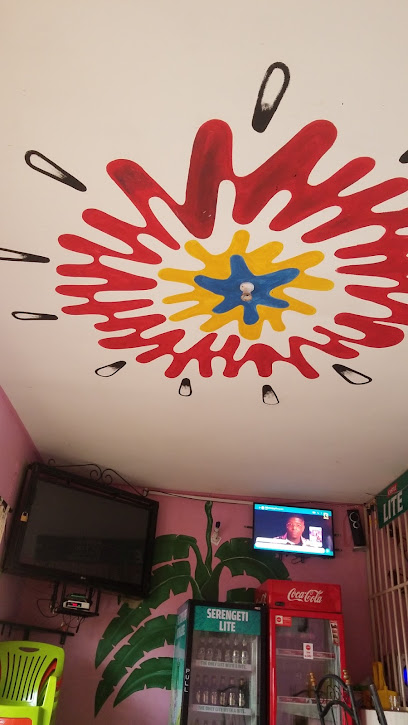
KARATU REST HOUSE
24.4 km
Discover the charm of Karatu at Karatu Rest House, your perfect lounge retreat in Tanzania's breathtaking landscapes.

Lilac Oasis
26.0 km
Experience the culinary excellence of Lilac Oasis in Karatu, where grilled delicacies meet local flavors in a warm and inviting atmosphere.
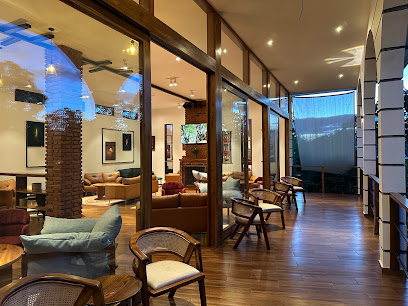
Double M Bar
41.0 km
Discover the vibrant atmosphere of Double M Bar in Mto Wa Mbu, where friendly faces and refreshing drinks await every traveler.
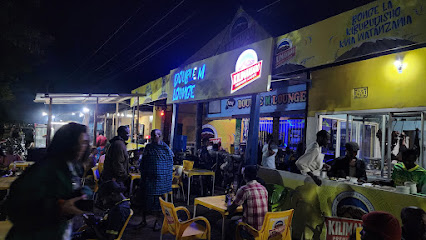
Jack's Pub Mto Wa Mbu
41.3 km
Jack's Pub in Mto Wa Mbu: Enjoy refreshing drinks in a lively atmosphere while experiencing local culture in Tanzania.
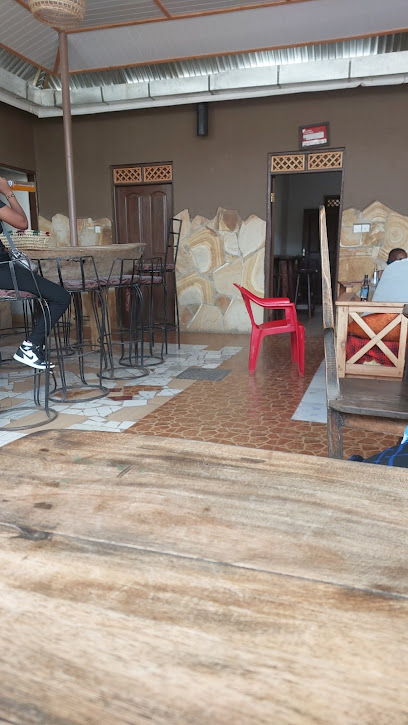
C and G Pub
41.4 km
Experience the vibrant nightlife and local culture at C and G Pub in Mto Wa Mbu, Tanzania, the perfect spot for relaxation and socializing.

SAFARI PARK
41.5 km
Discover the thrill of wildlife encounters and local culture at Safari Park in Mto Wa Mbu, a must-visit destination for every traveler.
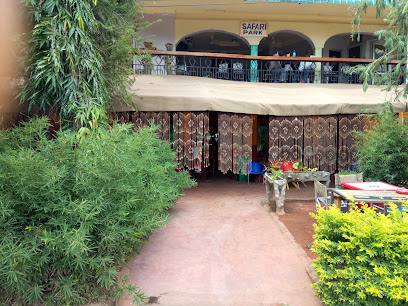
Mnazi Mmoja Pub
41.6 km
Experience the lively atmosphere of Mnazi Mmoja Pub in Mto Wa Mbu, where local culture and refreshing drinks come together.
